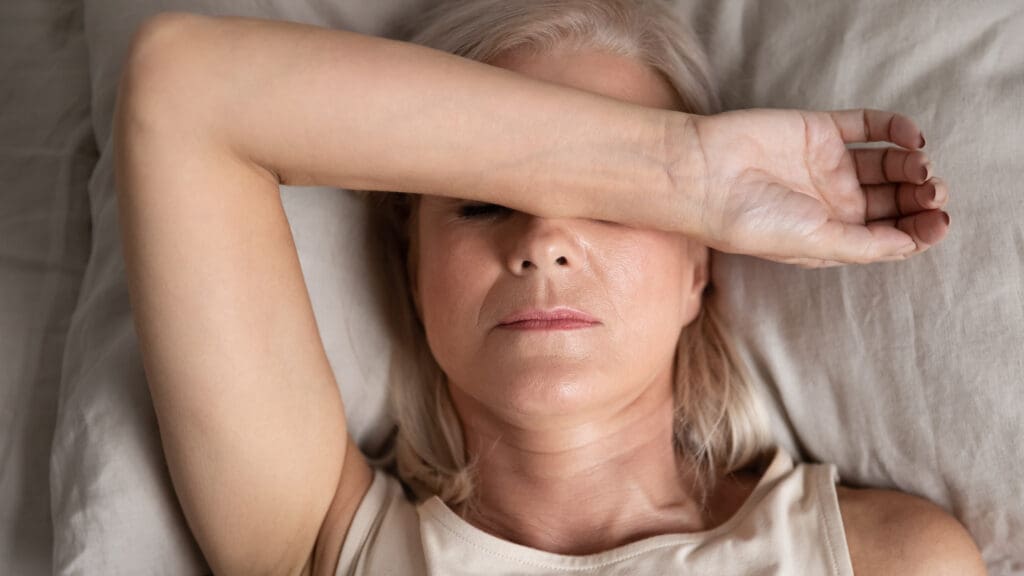June 18, 2025
Sleep’s Role in Menopause, Anxiety & Weight Gain
Menopause is a natural phase of life but if you’re struggling with weight gain, rising anxiety, and sleepless nights, it can feel anything but natural. You’re not alone. Many women experience a frustrating shift in how their body responds to food, stress, and rest during this time. So, what’s really going on? And how can we take back control?
Let’s connect the dots between menopause, anxiety, weight gain, and sleep and talk about what actually helps.

The Hormonal Shift Behind It All
During perimenopause and menopause, levels of oestrogen and progesterone begin to decline. These hormones aren’t just about reproduction they influence your mood, metabolism, and even sleep quality.
Low oestrogen levels can increase cortisol, your body’s primary stress hormone. High cortisol = more anxiety, more cravings (especially for carbs and sugar), and more belly fat storage. Sound familiar?
Why Sleep Is a Game-Changer
One of the most overlooked factors in menopausal weight gain is poor sleep. Hot flashes, night sweats, or racing thoughts can leave you tossing and turning. But here’s the catch: lack of sleep throws your hunger hormones off balance.
- Ghrelin (the hunger hormone) increases.
- Leptin (the satiety hormone) decreases.
- Your body becomes more insulin resistant.
This combo makes it much harder to manage weight and raises anxiety even further.
Anxiety and Emotional Eating
When anxiety spikes, it’s easy to reach for comfort foods. And with sleep deprivation making your cravings stronger, your brain is wired to want fast fuel often in the form of sugar or refined carbs.
This creates a vicious cycle:
Anxiety → Poor Sleep → Cravings → Weight Gain → More Anxiety
What You Can Do to Break the Cycle
Here’s the good news: small, consistent changes can reset the system.
1. Prioritise Sleep
- Set a consistent bedtime and wind-down routine.
- Avoid screens and caffeine at least an hour before bed.
- Consider magnesium-rich foods or supplements to calm the nervous system – Menobelly contains magnesium and Ashwagandha known to support sleep.
2. Support Your Nervous System
- Try daily mindfulness, gentle yoga, or deep breathing to reduce cortisol – box breathing is very affective.
- Adaptogenic herbs (like ashwagandha) or targeted supplements like Menobelly which may help with hormonal balance and stress.
3. Balance Your Plate
- Focus on protein, fibre, and healthy fats to stabilise blood sugar and cravings.
- Limit sugar and processed foods, especially in the evening.
4. Move Your Body (But Not to Exhaustion)
- Strength training helps maintain muscle and boost metabolism.
- Walking and gentle movement support both mood and sleep.
Final Thoughts
Menopause doesn’t mean you have to accept weight gain or live in a fog of anxiety and exhaustion. By focusing on better sleep and supporting your body’s changing needs, you can feel lighter, calmer, and more in control again.
Want more guidance?
- Personalised health coaching can really help support sleep, anxiety and weight gain – click here for more information.
- Menobelly contains magnesium and Ashwagandha to support the nervous but also nutrients to help with weight manage – click here for more information